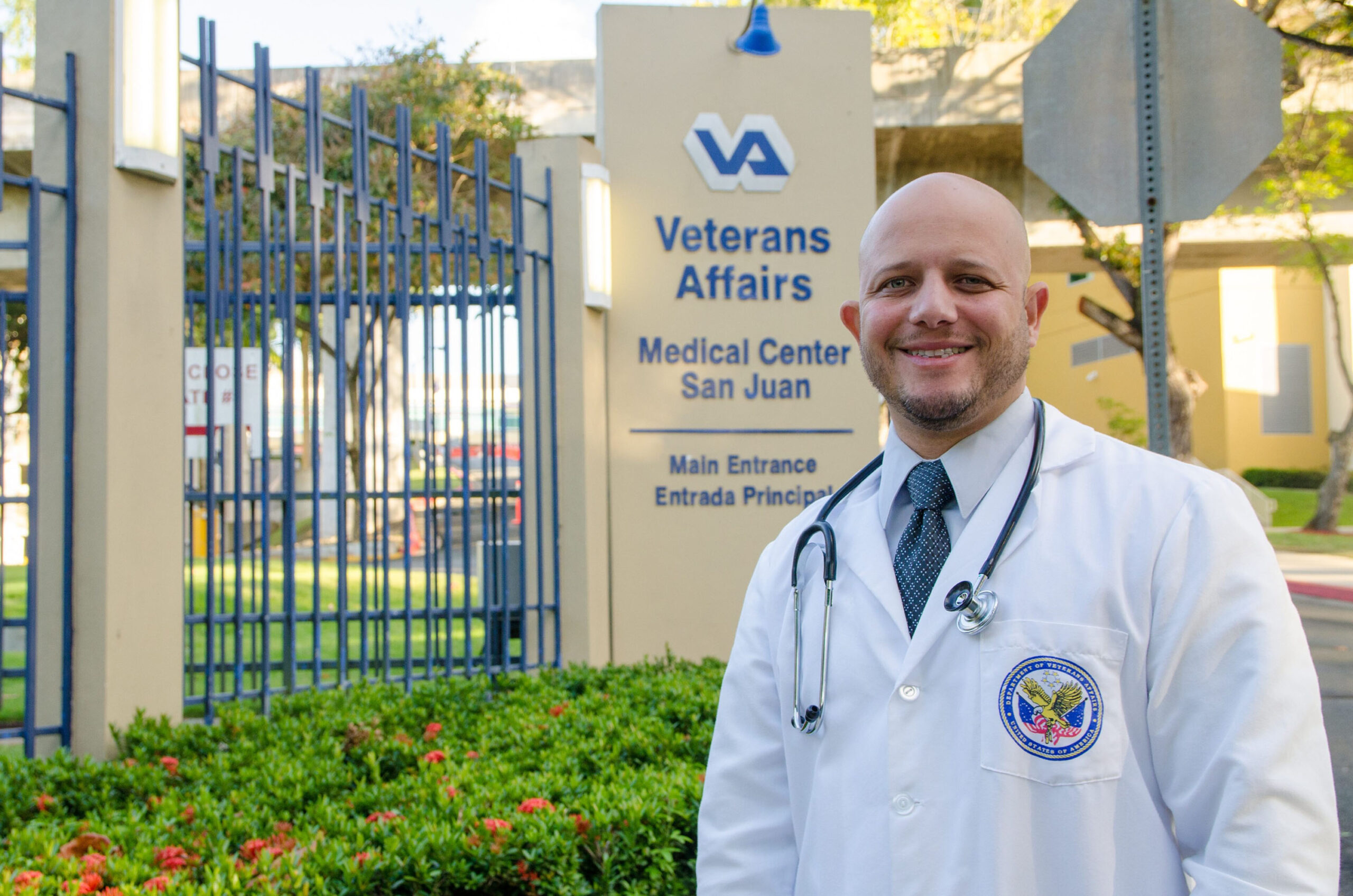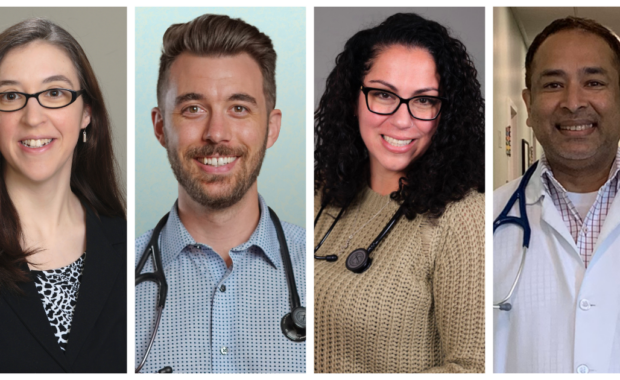Puerto Rico: The final frontier for PA licensure

Josue Droz, PA-C, always wanted to return home. Born in Puerto Rico, he was a child when his family moved to the continental United States. “It’s always been my heart’s desire to move back here,” he says. So after he became a PA, he joined the movement to bring PA legislation to the island.
Current law in Puerto Rico does not authorize PA practice. The only PAs who practice in Puerto Rico work for the federal government, and Droz is one of those few. He has worked for the U.S. Department of Veterans Affairs (VA) Caribbean Healthcare System in San Juan for two years, and believes educating people on the PA profession is “one of the important aspects of my job now.” He cites a lack of awareness by both physicians and patients in Puerto Rico as the main reason why Puerto Rico is the only U.S. jurisdiction that still does not grant PA licensure. “Most patients here don’t know what we are,” Droz says, but “once they get to know you, once they get to see results, they start trusting you.” Droz gives an example of a patient who “did not want to see me at all. But the physician was not available, so I was just speaking with him and he eventually did see me. But now he only wants to come to me.”
Droz says that his specialty, dermatology, helps him dispel any hesitation that patients may initially have about PAs. His healthcare team works with an older population, performing many excisions and biopsies, and treating medical issues such as psoriasis. “The great thing is, you see a lot of instant results [in dermatology],” he says. “[the patients are] just so appreciative of our work. Every day is gratifying. I know that may sound cliché, but it’s true.”
According to Droz, the collaborative environment between physicians and PAs at VA centers in Puerto Rico is very positive. In his department there are two full-time physicians, a part-time physician, and two full-time PAs. “The physicians get to see our work, and they trust our work, so we have a lot of autonomy,” Droz says, adding that he believes “our physicians love working with us,” and they respect PAs.
The PAs see their own patients, but “obviously, if there are advanced cases or questions we’ll go and get the doctor. They are always really good at helping and working as a team,” Droz explains.
Underlying Barriers
There are many underlying factors specific to Puerto Rico’s healthcare system that hinder PA licensure. For example, Puerto Rico allows foreign medical school graduates who are ineligible to practice on the mainland to practice as generalist physicians called “generalistas.” A prevalent concern is that PAs would seek independent practice and become the preferred, lower cost provider.
Droz has observed this preconception on the island first-hand, and says that many generalistas feel hesitant because they believe PAs would be in direct competition for their jobs. But Droz emphasizes that PAs can actually improve the healthcare system on the island. He wants “the Puerto Rican physicians to know we are not here to take their jobs, we are here to help with access to care.” For physicians, Droz asserts, working with a PA can even make their practice more profitable. Amid the current healthcare crisis in Puerto Rico, profitability has become increasingly important for physicians.
Puerto Rico’s Healthcare Crisis
More than 3,000 doctors left Puerto Rico over a five-year span for more profitable and less stressful jobs on the mainland.1 Johnny Rullán, Puerto Rico’s former Secretary of Health and Secretary of the Puerto Rico Healthcare Crisis Coalition, writes that the economic crisis is a crucial moment for Puerto Rico.2“More than 40 percent of the island’s debt is due to health care and the lack of funding from Medicaid in particular,” Rullán says.
Droz explains that the disparity in federal funding for healthcare in Puerto Rico compared to the U.S. is a big issue for Puerto Ricans. He says that the idea of hiring PAs is difficult for physicians because they ask “how are we going to pay you guys [PAs] when we ourselves are having a hard time being reimbursed?” Rullán outlines Puerto Rico’s reimbursement problems, writing that:
“Sixty percent of the Island’s population – over 2 million patients – receives their care through Medicare, Medicare Advantage or Medicaid. But despite paying the same Social Security and Medicare taxes, reimbursement rates on the Island are almost half those of mainland states. Puerto Rico’s Medicaid program receives 70 percent lower reimbursement rate of any other state and is capped, the Medicare Advantage program is paid 60 percent of the average rate – while having the highest MA enrollment in the U.S. – and Medicare reimbursement rates are 40 percent lower.”3
However, Droz believes that authorizing PA practice could be part of the solution to Puerto Rico’s healthcare crisis. He dismisses the claim that there is no access-to-care problem for Puerto Rico and says wait times outside the VA can be terrible. He says his mother could have an appointment at 8 a.m. and not see a doctor until 1 p.m. Droz highlights that those who merely look at the doctor-to-patient ratio, which is about the same as the U.S., fail to take into account the critical role PAs and nurse practitioners (NPs) play in the States. Earlier this year, Puerto Rico adopted legislation that recognizes NPs. Droz asserts that both PAs and NPs can help alleviate the lack of access to care.
If PA legislation passes, more PAs originally from Puerto Rico, like Droz, could come back to make a positive impact on the Island. As Droz says, many Puerto Ricans return home because, “It’s just something that’s in our hearts.”
The Department of Veterans Affairs in San Juan, PR
- Alvarez, Lizette and Abby Goodnough. “Puerto Ricans Brace for Crisis in Health Care.” The New York Times. 2 August 2015. http://www.nytimes.com/2015/08/03/us/health-providers-brace-for-more-cuts-to-medicare-in-puerto-rico.html?_r=2
- Rullan, Johnny. “Understanding Puerto Rico’s Healthcare Collapse.” Morning Consult. 20 June 2016.https://morningconsult.com/opinions/understanding-puerto-ricos-healthcare-collapse/
- Ibid.
Thank you for reading AAPA’s News Central
You have 2 articles left this month. Create a free account to read more stories, or become a member for more access to exclusive benefits! Already have an account? Log in.




